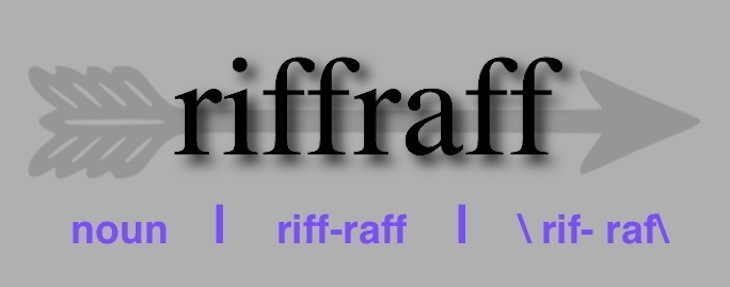Riff Raff: Let’s put the ‘public’ in Public Facilities Board
by February 4, 2019 6:58 pm 1,030 views

An initial response from the Fort Smith city administrator reflects the city’s persistent and puzzling tone-deaf default setting, but the city has an opportunity to pivot from past practices and provide citizens with transparency with respect to one aspect of the proposed U.S. Marshals Museum tax.
That aspect is the formation of a Public Facilities Board (PFB); specifically, the timing of when the board is named.
The Fort Smith Board of Directors set March 12 as a special election for a one-cent sales tax that will be on the books for just nine months. Revenue from the proposed tax is estimated to raise the remaining $17 million needed to complete the exhibits and other insides of the facility now under construction in downtown Fort Smith along the riverfront. Fort Smith was selected in early 2007 for the national museum, and fundraising in the subsequent 11-plus years has been frustratingly slow, well below what is needed for the $50 million project.
With museum officials pushing for a fall 2019 museum opening, the pressure is on to close the funding gap. Thus, the proposed limited-life sales tax. If the tax is approved, it will take effect July 1, and the city will begin receiving tax revenues in August or September.
An independent PFB must be named by the Fort Smith Board of Directors. The PFB will own the museum facility and grounds, but the U.S. Marshals Museum will lease the building and grounds from the city and manage the operation. However, the PFB will have an oversight role and would be in the chain of command, so to speak, if financial, operational, legal or other issues emerge. In other words, there will be a contractual relationship between the PFB and the museum, and there is no such thing as a sure-thing contract.
And there is no legal reason in the ordinance establishing the tax election and process to wait until after the election to name a PFB. Naming a PFB prior to the election would give voters more information about the process. Such a move would put names and faces on future oversight. Such a move would make more transparent a roughly $17 million request from city voters.
Such transparency is welcomed by U.S. Marshals Museum Foundation President & CEO Jim Dunn.
“I think that is a good idea, but really it’s not our call. That is up to the city,” Dunn told Talk Business & Politics.
Naming the PFB prior to the election would also answer a criticism of those opposed to the tax. A member of a group formed to campaign against the sales tax has alleged the PFB will be the same group of “downtown elitists who control every development in Fort Smith.”
But City Administrator Carl Geffken prefers an assumed, but non-binding process, instead of transparency.
“The creation of the Public Facilities Board is up to the City, though it must be organized and functioning prior to the receipt of tax collections by the City,” Geffken said after checking with City Attorney Jerry Canfield on the rules and regulations of a PFB. “Given these rules, it only makes sense to create the Public Facilities Board between the date of the election and July 1, 2019,”
A potential downside of naming a PFB prior to the election is that those folks could “create an unnecessary distraction” prior to the election, an elected city official explained to me. That’s a valid point. The same folks critical of not naming a PFB might attack the makeup of a named board to make their case. Damned if you don’t, damned if you do.
But I argue that certain transparency should not take a back seat to uncertain distractions. Providing voters with as much information possible should be preferred to government officials seeking to make the process easier on them, and certainly preferred to any appeasement of a small group of voters who will support or oppose a tax issue no matter the level of transparency.
To be sure, this is not an endorsement for or against the tax. It is a request to the Fort Smith Board of Directors to treat voters like responsible municipal shareholders and make “public” a Public Facilities Board prior to early voting on March 5.
